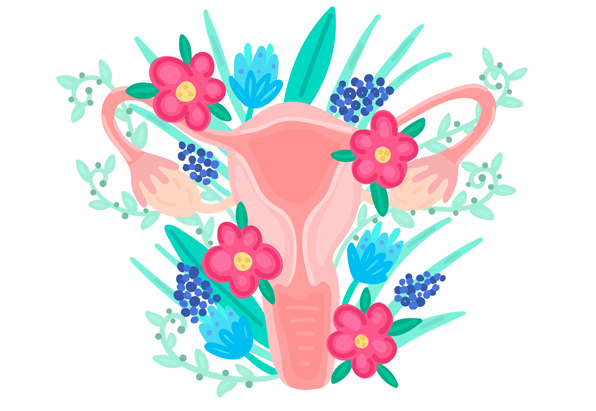We all know that menopause marks the end of your periods, but what happens to your vagina during menopause? Did you know that perimenopause and menopause can affect the way your vagina feels and performs? This group of symptoms is called genitourinary syndrome of menopause (GSM), and although it doesn’t affect all menopausal women, it’s more common than you think.
Dr Aka, Consultant Gynaecologist at The Gynae Centre, says, ‘Many patients complain of symptoms that make them feel less ‘womanly’ or ‘sexual’ during the menopause, and have never even heard of GSM. As a consequence, they do not realise until they seek advice from a gynaecologist that there are medications and lifestyle changes that can be made to alleviate these symptoms, allowing them to regain their comfort and self-esteem.’
How Common Is Genitourinary Syndrome (GSM) In Menopause?
Previously known as vulvovaginal atrophy, GSM can cause vaginal dryness, itching, urinary tract infections and more. These aggravating symptoms can be persistent without treatment and often go unreported due to embarrassment, concern about the social stigma attached to vaginal health issues, or choosing to self-medicate. Symptoms can also be misdiagnosed, with patients receiving treatment for individual symptoms, rather than the root cause.
Although it is difficult to pin down an exact percentage of menopausal women with GSM due to underreporting and misdiagnosis, we can approximate from several studies that around 27% to 84% of postmenopausal women are affected by the condition. One particular survey found that 59% of menopausal women felt the condition detracted from the enjoyment of sex, 47% said it interfered with their relationship, and 29% reported that it negatively affected their sleep.
Causes Of GSM
GSM is the result of an oestrogen deficiency within the female reproductive organs. During the perimenopausal phase, the ovaries begin to produce less oestrogen; the main symptom of this process is a change in periods – increased or reduced length or frequency, or a heavier or lighter flow – until menopause occurs and periods stop altogether. However, a decline in oestrogen also causes the signs and symptoms of GSM, which are detailed below.
The Vagina And Menopause – Symptoms Of GSM
Just as menopause is experienced differently from woman to woman, so is GSM. Some women may experience just one symptom, while others may suffer from multiple symptoms. These symptoms can also be mild or severe, and treatment can be adjusted accordingly.
- Thinning of rugal folds
Rugal folds are wrinkle-like structures in the wall of the vagina. These expand to allow for penetration, and when giving birth. During menopause, the lack of oestrogen can cause the rugae to thin or flatten, which can cause pain during sex. - Narrowing or shortening of the vagina
Along with the thinning of the rugal folds, sex can also feel uncomfortable or painful during menopause due to a shortening or narrowing of the vagina. In addition, you may experience dryness, even when aroused.
If this is the case, more sex is actually encouraged, as the absence of sexual activity can exacerbate these symptoms. The use of a lubricant may help to make the experience more comfortable. - Loss of sensitivity
The pelvic floor muscles can weaken during menopause, which may cause a loss of sensitivity to sexual activity. In addition, clitoral sensitivity can also decrease, possibly due to reduced oestrogen levels combined with a change in the vascular and nervous systems. - Incontinence
Another common side effect of weakened pelvic floor muscles is urinary incontinence. Women during menopause may find that a small amount of urine releases when coughing, sneezing, laughing or exercising, which can be inconvenient or embarrassing. - Yeast infections and UTIs
The change in hormones during perimenopause and menopause can disrupt the vaginal microbiome, which is the collection of bacteria that inhabits the vagina. Lactobacilli, the dominant bacteria in the vagina that helps to keep the microbiome balanced, can decrease in menopausal women, which can result in a yeast infection. Additionally, the decline in oestrogen causes changes in the urinary tract, which may increase susceptibility to infection.
Treatment For Menopause And GSM
‘Women going perimenopause and menopause do not have to put up with the unwanted symptoms of GSM. Hormone replacement therapy (HRT) is a highly successful treatment option that can alleviate symptoms entirely.’ explains Dr Aka.
At The Gynae Centre, we offer the Mirena coil, an intrauterine device (IUD) that has become the recognised approach for protecting you from exposure to systemic progesterone and its alleged connection with breast cancer. We also offer screening for ovarian cancer. This is carried out using transvaginal ultrasound combined with CA125 and HE4, which is a new marker for ovarian cancer.
To find out more about hormone replacement therapy for menopause and/or GSM, book a consultation with one of our expert consultants on 020 7580 8090 or book online.






